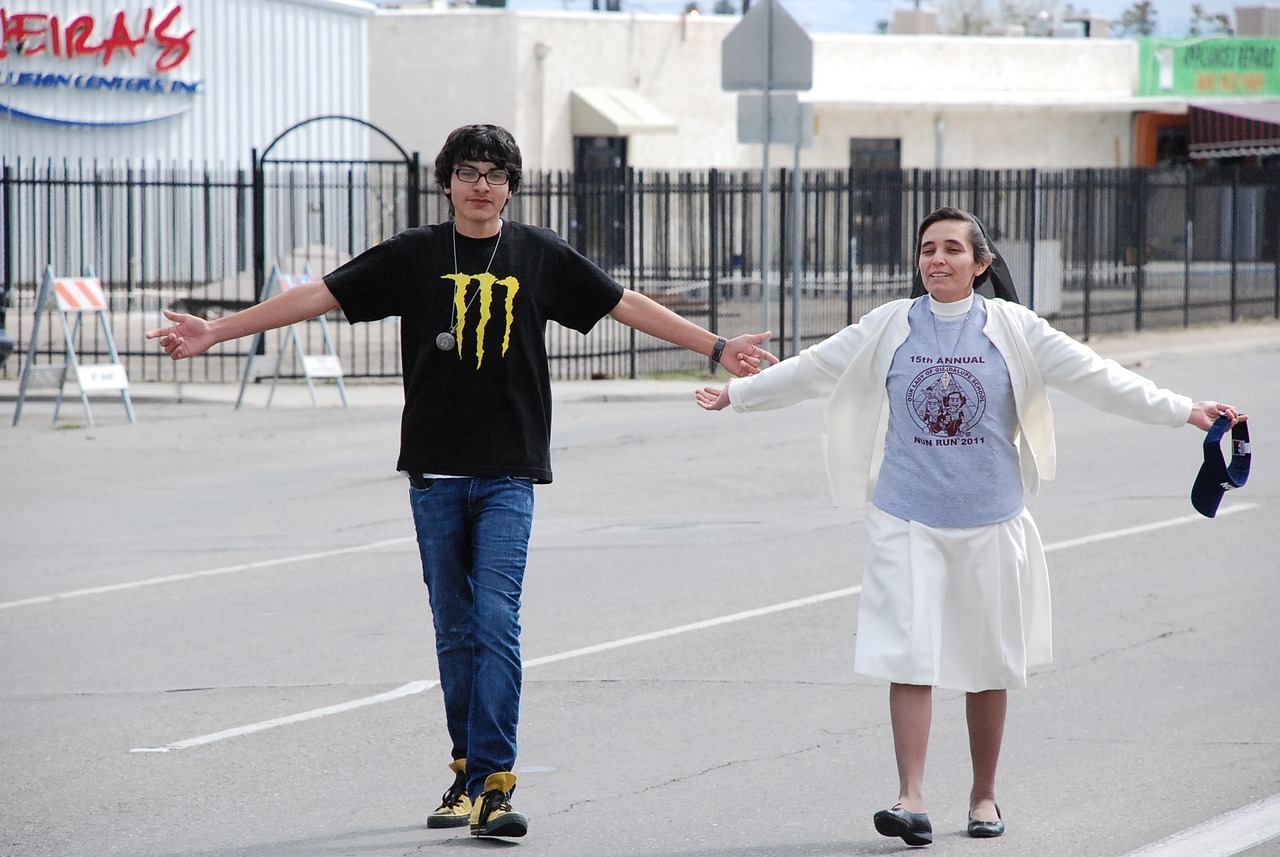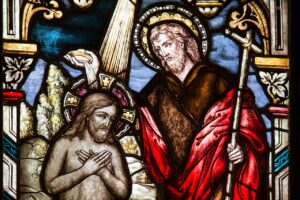Exodus 34: 4b-6, 8-9 (RM) or Genesis 1:1-2:4a (RCL); Canticle from Daniel 3 (RM) or Psalm 104 (RCL); 2 Corinthians 13: 11-13 (RM) or 1 Corinthians 12: 3b-13(RCL); John 3: 16-18 (RM) or John 20: 19-23 (RCL).
“Offer it up for Jesus” whispered the tiny nun in her modified habit, of the textured polyester that was popular in 1975. Four of us young women were taking part in a lay mission organization during our gap year, working at a home for children in the flat wildland of South Texas. Working conditions were grueling, chaotic and 24/6 (we were offered the “option” of working seven days a week if we wished, probably to encourage us to make a pious sacrifice. In fact it was illegal under Texas child welfare law.) When we protested, however politely, Mother Teresa (no, not that Mother Teresa) would softly adjure us, “Offer it up for Jesus, girls.” We’d walk away muttering, “Jesus don’t want it!”
This may have had something to do with my later involvement in the university professors’ union as president and chief negotiator. Somehow, I think Jesus would be better pleased with making justice.
For Trinity Sunday we’re taking the Gospel passage from John 3 in the Roman Missal, but we need to pick it up from verse 15, before we get to the famous verse 16, “God so loved the world…” Verse 16 shows up regularly, at least in the U.S., on bumper stickers, billboards, at sports events. For many it’s their favourite verse, easy to remember, comforting and reassuring that no matter what goes wrong, God loves us and hope never dies. Not a problem so far.
The preceding verse 15 reads,
“As Moses lifted up the serpent in the wilderness, so it is that the Human one [or the Son of Man] must be lifted up, that everyone who believes in him may have eternal life.”
The phrase tying the two together is “whoever believes in him may have eternal life.” But between the two is encapsulated a whole theology that many Christians today, not just professional theologians, are holding up to the light and exposing some disturbing facets. The patriarchal expression “his only Son” makes one stumbling block, the male pronoun for God is another, the image of people dying of snakebite in the desert is another, and the bronze snake lifted up on the pole doesn’t help. But as always, there may be more here than appears on the surface.
New Testament researcher Mary L. Coloe writes that the phrase:
“Lifted up… is problematic and must be understood in its context and as a later interpretation of a horrific event. Suffering and the cross can be misused in ways that contribute to the ongoing oppression of people. Simplistic platitudes such as ‘offer it up’ or ‘think of Jesus’ distort the Gospel and are used to keep vulnerable people, such as children, the elderly, and women who are abused, in silence. The Gospel is a message of life in its fullness … and anything that detracts from such fullness of life is not to be spiritualized. When this is done deliberately to maintain the subjugation of another, it must be named as evil.”
And a little further under the surface is the fact that Jesus in the Gospel of John is in fact Sophia, the figure of Wisdom, the one whose children take part here and now in life that does not die, precisely because of Jesus’ love and the choices he made from love, reflecting and embodying the love of the Creator. There are no dualistic splits in the Holy One, in spite of the Father/Son language. There are (at least) three dimensions, not a flat two. The dynamic of love envelops and energizes a cosmic love beyond our imagining, beyond our ability to express in words. Therein lies the invitation, and the mystery, of the Holy One as Three.
Trinity Sunday pushes us up against a window that allows a glimpse, just a glimpse, of infinity.
If we have to offer up anything, let’s sacrifice our limitations and our set ways of thinking. Let’s sacrifice the tendency to expect God to meet us on our own terms.
And press our nose tight against that window.
© Susan K. Roll
Susan Roll retired from the Faculty of Theology at Saint Paul University, Ottawa, in 2018, where she served as Director of the Sophia Research Centre. Her research and publications are centred in the fields of liturgy, sacraments, and feminist theology. She holds a Ph.D. from the Catholic University of Leuven (Louvain), Belgium, and has been involved with international academic societies in liturgy and theology, as well as university chaplaincy, Indigenous ministry and church reform projects.





What struck me most was your line: “The dynamic of love envelops and energizes a cosmic love beyond our imagining, beyond our ability to express in words. Therein lies the invitation, and the mystery, of the Holy One as Three.” Wow!!